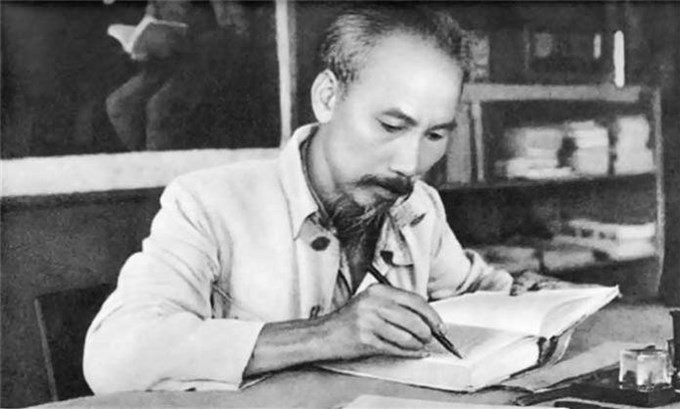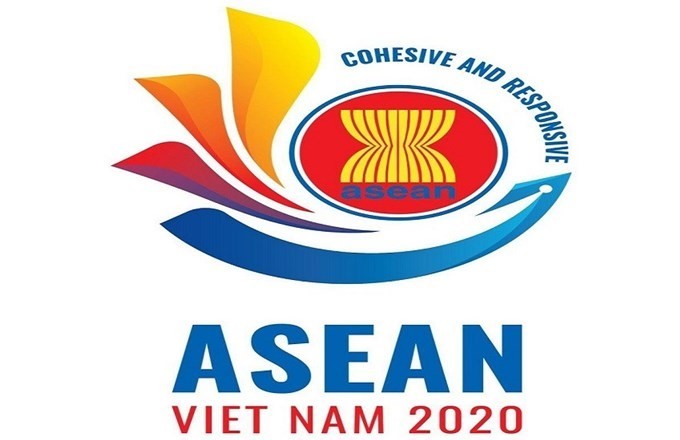
Viet Nam’s diplomacy of multilateralization and diversification in a new thingking
Latest
 |
| In the Call to the United Nations(1946), President Ho Chi Minh clearly stated the principles of Viet Nam’s diplomacy. |
In fact, right after the August Revolution 1945, in the Call to the United Nations (1946), President Ho Chi Minh clearly stated the main principle in Viet Nam's foreign policy: "With democratic countries, Viet Nam is ready to realize the open-door policy and cooperate in all fields[…] Viet Nam agrees to join all international economic cooperation organizations under the helm of the United Nations”[1].
On 14th January, 1950, President Ho Chi Minh represented the government of the Democratic Republic of Viet Nam to declare to the world that “The Government of the Democratic Republic of Viet Nam is ready to establish diplomatic relations with every government that respects the equal rights, territorial sovereignty and national sovereignty of Viet Nam, in order to jointly protect peace and build democracy around the world”[2].
With such an approach, the Democratic Republic of Viet Nam soon established its diplomacy of multilateralization and diversification in accordance with the situation and the new substance of the rapidly and comprehensively changing world after World War II.
It was also because of that approach, whether as in the situation of "hanging by a thread", at the moments of declaring glorious victory, or during 30 years of long-term resistance, Viet Nam not only established and constantly expanded diplomatic relations with dozens of countries inside and outside the socialist system, but was also given more consent and supports from brother and friend countries as well as progressive forces and people all over the world.
Viet Nam became an organic part, a pioneering flag of the national liberation movement and the world movement of peace and democracy in the 20th century. The foreign policy for "peace and democracy building" has become the strength of the age that, combined with inner national strength, led the country to the great victory on April 30, 1975.
After 1975, the post-war Viet Nam continued to change rapidly and comprehensively, especially since the end of the "Cold War" that destroyed the bipolar order and formed a multipolar world. Viet Nam then overcame a difficult and dangerous situation for 10 years (1975-1985) and entered the "Doi Moi" process, gradually building and developing the whole country in a multipolar world.
A new era of multilateral and diversified Vietnamese diplomacy has existed as a logical and inevitable entity. Viet Nam no longer maintains the foreign policy of “cornerstone” in foreign relations[3], not only focuses on the relations with “brotherhood” countries and neighbors, but step by step has become " a friend, reliable partner and responsible member in the international community, contributing to the cause of peace, national independence. democracy and social progress in the world[4].
By establishing external relations with 189 of 193 UN member states, including 30 strategic and comprehensive partners (including all major countries and 5 permanent members of the United Nations Security Council), Viet Nam's diplomacy gradually "expanded and deepened, creating a framework for stable and sustainable relations with partners.
Viet Nam actively participates in the development of principles and standards in regional and global multilateral institutions; properly and effectively handling relations with neighboring countries, major countries, strategic partners, comprehensive partners and other partners”[5].
Not only maintaining independence, self-reliance, promoting the country's strengths, Viet Nam has gradually integrated into the world, got to know how to handle international relations. The country's reputation and voice are respected by friends and partners in the region and all over the world.
 |
| Viet Nam has completed well the tri-role in global institutions: ASEAN Chair 2020, Chairman of The ASEAN Inter-Parliamentary Assembly 2020, Non-Permanent Member of the United Nations Security Council 2020-2021. |
In the 20s of the 21st century, a new era of development transformation has begun. That is when the world has been going through great changes, the international and regional situation continues to have complicated and unpredictable developments.
Although peace, cooperation and development are still major trends, strategic competition among major powers continues to strongly influence international relations. The response to the Covid-19 pandemic had a rapid and comprehensive impact on the global economic recovery.
There is also a new period for Viet Nam to develop, especially when clearly defining important centennial historical milestones for 2030 and 2045. In regional geopolitics and geoeconomics, Viet Nam has been keeping a balance in relations with other countries to become a more important factor in the regional and global strategies of major countries, opportunities and challenges for the country are increasing day by day.
Viet Nam has solved a series of issues with thousands of difficulties in the beginning that greatly affected the new development period. The country has deeply integrated into the regional and global economy, become the link of many large and important regional and inter-regional economic associations, shifting from participating in mechanisms and frameworks led by other countries to the position of jointly initiating and creating new mechanisms and new playing fields.
Viet Nam has successfully completed its dual role of three responsibilities: Chair of ASEAN 2020, Chairman of the ASEAN Inter-Parliamentary General Assembly 2020 and the Non-permanent member of the UN Security Council 2020-2021.
In that context, the 13th National Party Congress put forward Viet Nam's development orientation for the 2021-2030 period, stating: "Continuing to implement the foreign policy of independence, self-reliance, multilateralization and diversification of international relations; proactively and positively integrate into the world comprehensively, extensively and effectively; maintaining a peaceful and stable environment, constantly promoting Viet Nam's international position and prestige"[6].
Viet Nam's diplomacy is once again shaping a new thinking of multilateralization and diversification. That is to see the opportunity in every difficulty, understand the pioneering role of foreign affairs; determine the supreme interests of the nation - state; promote multilateral diplomacy and build a comprehensive and modern diplomacy with three pillars (party diplomacy, state diplomacy, people-to-people diplomacy).
In the article published on April 5th 2021 on “Foreign policy line of the 13th National Party Congress with the aspirations of national development”, Minister of Foreign Affairs Bui Thanh Son emphasized the new developments in the Party’s thinking on bilateral and multilateral foreign affairs.
Accordingly, it is necessary to “maintain the line of continually advancing and deepening ties with Viet Nam's partners”, “create a state of interwoven interest” and “build confidence” in bilateral relations. We also need “actively participate and contribute in order to raise Viet Nam's role in the making and shaping of multilateral institutions and the international political and economic order”[7].
Thus, there is a practical basis to promote and elevate bilateral and multilateral foreign relations, a precedent for actively joining and promoting Viet Nam's role in many international mechanisms. Therefore, the goal of multilateral diplomacy is: "to strive to play a pivotal role, to lead or mediate at multilateral forums and organizations of strategic importance to the country"[8], which was defined in Directive No.25 as reasonable and feasible goal.
The task of “maintaining a peaceful, stable environment for national development and making the most of external resources to create a favorable premise for the realization of development aspirations" is also relevant enough to “create the firm foundation” for Viet Nam “to become a high-income developed country by 2045”[9].
[1] Ho Chi Minh Complete Works, Volume 6 (2011), National Political Publishing House, p.523 (in Vietnamese).
[2] Ho Chi Minh Complete Works, Volume 6 (2011), National Political Publishing House, p.311 (in Vietnamese).
[3] The political report at the 5th National Party Congress (1982) affirmed that "solidarity and comprehensive cooperation with the Soviet Union have always been the cornerstone of the foreign policy of the Party and State ". Complete Party Documents, National Political Publishing House, p.43, p.142
[4] The Documents of the 11th National Party Congress, National Political Publishing House (2011), p. 84.
[5] , [6], [9], The Documents of the 13th National Party Congress
[7] Bui Thanh Son, “Foreign policy line of the 13th National Party Congress with the aspirations of national development”.
[8] The Directive No. 25-CT/TW dated August 8, 2018 of the Secretariat of the CPV’s Central Committee on promoting and elevating multilateral foreign relations to 2030.












